You’ve had one of those weeks. The kind where your shoulders stay locked up, your mind won’t switch off, and even your coffee doesn’t help. You’re not alone. In London, where the pace never slows and the noise never stops, finding real relaxation isn’t a luxury-it’s a necessity. And that’s where the best massage London has something powerful to offer: not just relief, but real restoration.
Key Takeaways
- The best massage in London isn’t about the most expensive spa-it’s about the right fit for your body and needs.
- Swedish, deep tissue, and relaxation massages are the most popular and widely available options across the city.
- Look for therapists with recognized certifications (ITEC, VTCT, or CMT) to avoid risky or untrained services.
- Neighborhoods like Notting Hill, Soho, and Hampstead have some of the highest-rated studios with consistent reviews.
- A 60-minute session typically costs between £60 and £90; longer sessions or premium locations can go up to £130.
Comprehensive Guide to the Best Massage in London
London is packed with massage options. From tucked-away studios in Camden to luxury spas in Mayfair, there’s no shortage of places promising peace. But here’s the truth: not all massages are created equal. The best massage London isn’t the one with the fanciest candles or the most Instagrammable decor. It’s the one that actually works for you. Think of it like shoes. You don’t buy the most expensive pair-you buy the one that fits your foot. Same with massage. If you’re carrying stress in your neck from staring at screens all day, a deep tissue session might leave you sore. But a gentle Swedish massage? That could melt the tension away in 45 minutes. The key is matching your goal to the right type of therapy. Are you looking to unwind after a long flight? Recover from a workout? Just escape the chaos of the city for an hour? Each need calls for a different approach.What Is a Relaxation Massage-and Why Does It Matter?
A relaxation massage, often called a Swedish massage, uses long, flowing strokes, light pressure, and rhythmic movements to calm your nervous system. It’s not about fixing tight muscles-it’s about resetting your whole system. Studies show that even one session can lower cortisol (the stress hormone) by up to 31% and boost serotonin and dopamine levels. In London, where burnout is common and work hours are long, this isn’t just nice to have-it’s a health tool. People who get regular relaxation massages report better sleep, fewer headaches, and a calmer mindset. One client, a teacher from Clapham, told me she started coming every three weeks after her son was born. "I didn’t realize how tense I was until I felt what it was like to actually relax," she said.Types of Massage Available in London
London offers a wide range of massage styles. Here are the most common-and what they’re actually good for:- Swedish Massage: Gentle, full-body strokes. Best for stress relief, circulation, and beginners.
- Deep Tissue Massage: Focused pressure on deeper muscle layers. Ideal for chronic pain, athletes, or desk workers with stiff shoulders.
- Hot Stone Massage: Smooth heated stones placed on key points. Great for deep relaxation and muscle release.
- Thai Massage: Performed on a mat, with stretching and pressure along energy lines. Good for flexibility and energy flow.
- Lymphatic Drainage Massage: Very light, rhythmic touch. Helps reduce swelling and supports immune function.
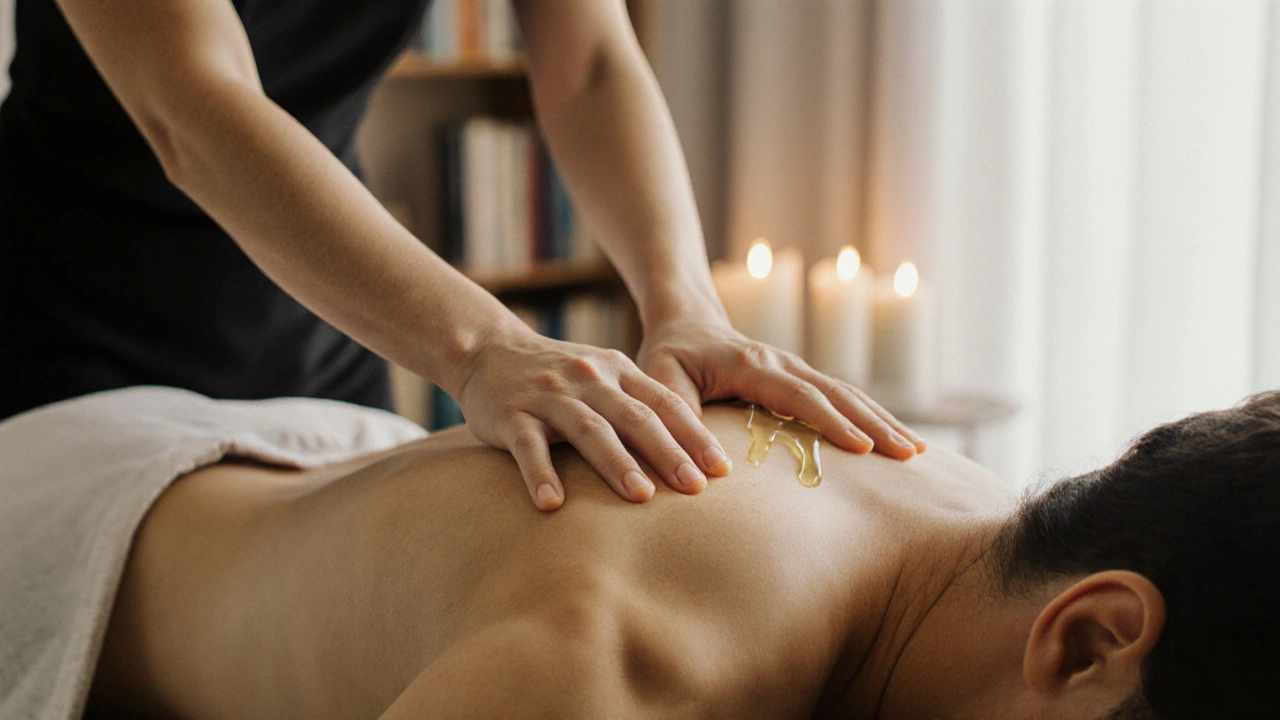
How to Find the Best Massage Services in London
Finding a good massage therapist in London doesn’t mean scrolling through 500 Google results. Here’s how to cut through the noise:- Check reviews on Google and Trustpilot. Look for consistent mentions of "professional," "calm environment," and "listened to my needs." Avoid places with only 5-star reviews-real ones have a few 4-stars with thoughtful comments.
- Look for certified therapists. The best places list qualifications like ITEC, VTCT, or CMT. These are UK-recognized standards. If they don’t say anything about training, walk away.
- Ask about their experience. A therapist who’s been working for five+ years in London knows the common issues locals face: back pain from commuting, tension from standing all day, stress from long hours.
- Visit the studio in person or on video. A clean, quiet, well-lit space with soothing music and no clutter? That’s a good sign. A dark room with no clear booking system? Red flag.
- Try a neighborhood spot. Some of the best experiences happen outside the tourist zones. Try studios in Primrose Hill, Brixton, or Richmond. They often have fewer tourists and more repeat clients.
What to Expect During Your First Session
Your first massage shouldn’t feel like a performance. Here’s what actually happens:- You’ll fill out a short form-health history, injuries, areas you want focused on.
- The therapist will ask a few questions: "Where do you carry tension?" "Any pain you’re dealing with?" They’re not just being polite-they’re tailoring the session.
- You’ll be left alone to undress (you can keep underwear on) and get under the blanket. The room will be warm, quiet, and dim.
- They’ll use oil or lotion. You shouldn’t feel sticky afterward.
- Pressure should be adjustable. If it’s too hard, say so. If it’s too light, say so. Good therapists expect this.
- You might feel a little sore the next day if it was deep tissue-but not bruised or in pain.
- Afterward, you’ll get water, and they’ll suggest stretches or self-care tips.
Pricing and Booking: No Surprises
Let’s talk money, because no one likes hidden fees.- 60-minute Swedish or relaxation massage: £60-£85
- 90-minute session: £85-£120
- Deep tissue or hot stone: £70-£100
- Mobile massage (at home or office): £90-£130 (includes travel)
- First-time discount: Many places offer 10-15% off your first visit. Always ask.

Safety Tips: Protect Your Wellbeing
London has some excellent therapists-but it also has unlicensed operators. Here’s how to stay safe:- Never go to a place that doesn’t show therapist credentials.
- Don’t go to a private home unless it’s a verified mobile service with a clear website and reviews.
- If a therapist offers "special services" or hints at anything sexual, leave immediately. That’s not massage-it’s exploitation.
- Make sure the room is private and the door can be closed without locking.
- Trust your gut. If something feels off, it probably is.
Comparison: Relaxation Massage vs. Deep Tissue Massage in London
| Feature | Relaxation Massage | Deep Tissue Massage |
|---|---|---|
| Pressure | Light to medium | Strong, focused |
| Best for | Stress, sleep, anxiety | Chronic pain, sports injuries, muscle knots |
| Duration | 60-90 minutes | 60-75 minutes (longer sessions can be too intense) |
| After-effects | Feeling calm, sleepy, refreshed | May feel sore for 1-2 days |
| Frequency | Weekly or biweekly | Every 2-4 weeks |
| Typical price (60 min) | £60-£80 | £70-£95 |
If you’re unsure, start with relaxation. You can always try deep tissue later. Many people think they need deep tissue because they feel "tight," but often, it’s just stress holding them there.
Frequently Asked Questions
What’s the difference between a massage therapist and a spa masseuse in London?
A licensed massage therapist has completed formal training and holds a recognized certification like ITEC or VTCT. They understand anatomy, contraindications, and safe techniques. A "spa masseuse" might just be trained on the job-sometimes with minimal instruction. Always ask for credentials. The difference isn’t just in skill-it’s in safety.
Can I get a massage if I’m pregnant?
Yes-but only with a therapist trained in prenatal massage. Not all studios offer this. Look for "pregnancy massage London" specifically. They’ll use special positioning and avoid certain pressure points. Many women find it helps with back pain, swelling, and sleep. Avoid spas that don’t ask about your trimester.
Is it okay to talk during a massage?
You can, but most therapists prefer silence. If you need to say something-"that’s too much," "can we go slower," "I’m cold"-say it. That’s why they’re there. But if you want to chat about your weekend, wait until the end. The point is to let your nervous system unwind, not to have a conversation.
How often should I get a massage in London?
For stress relief or general wellness, once every 2-4 weeks works well. If you’re dealing with chronic pain or intense physical activity, once a week for 4-6 weeks, then taper off. Think of it like exercise: regular is better than occasional. Many Londoners book monthly as part of their self-care routine, just like going to the gym.
Do I need to tip after a massage in London?
No, tipping isn’t expected in the UK. Some people leave £5-£10 if they loved the experience, but it’s entirely optional. The price you pay includes the therapist’s time and expertise. If you want to show appreciation, leave a Google review instead-it means more to them than cash.
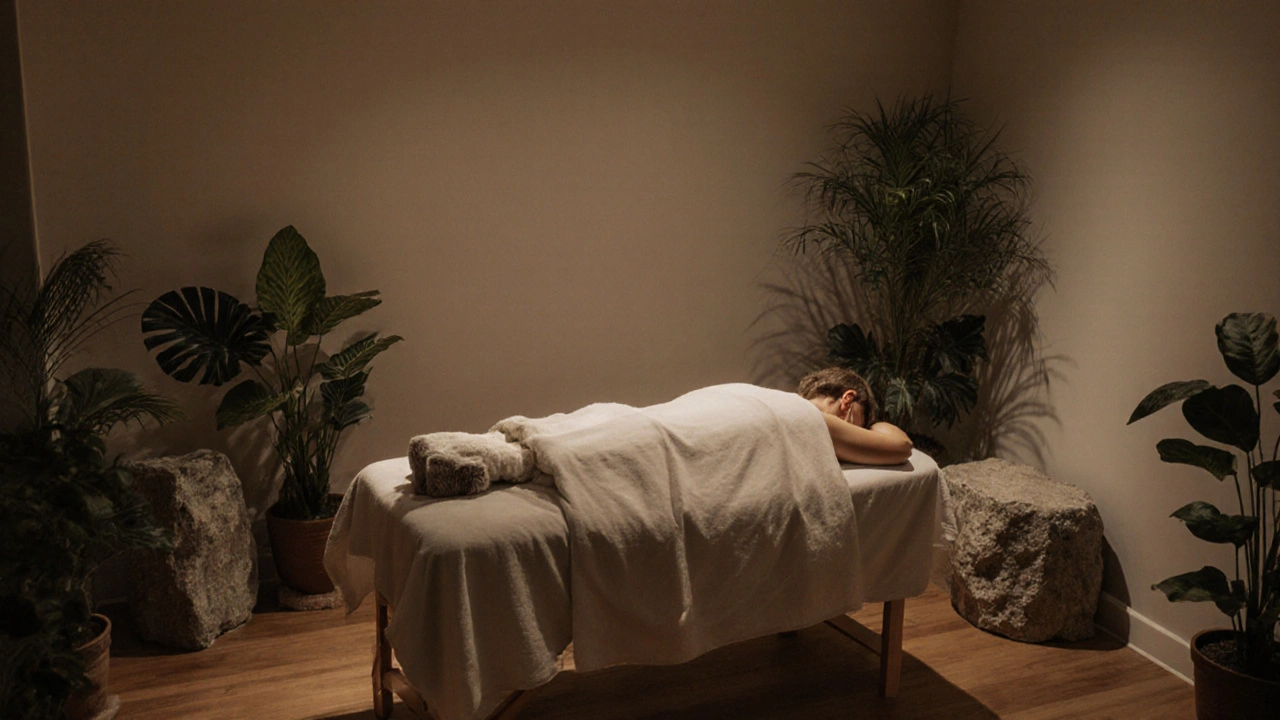
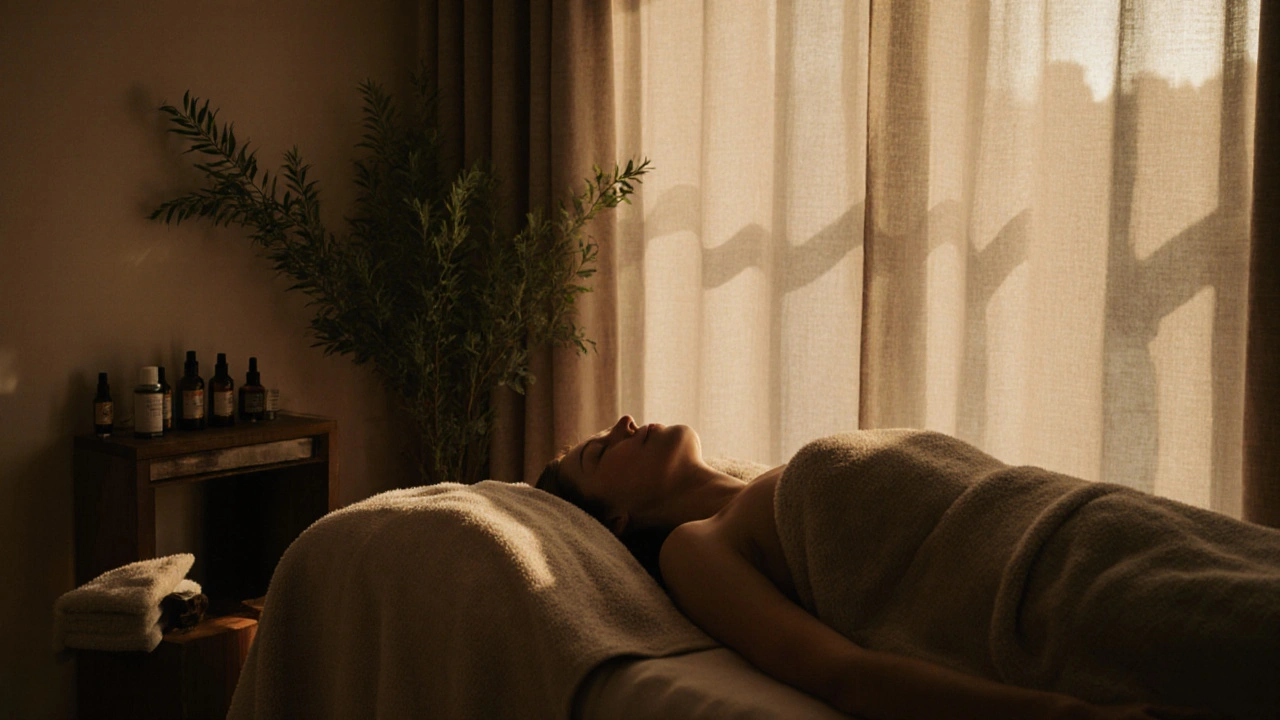

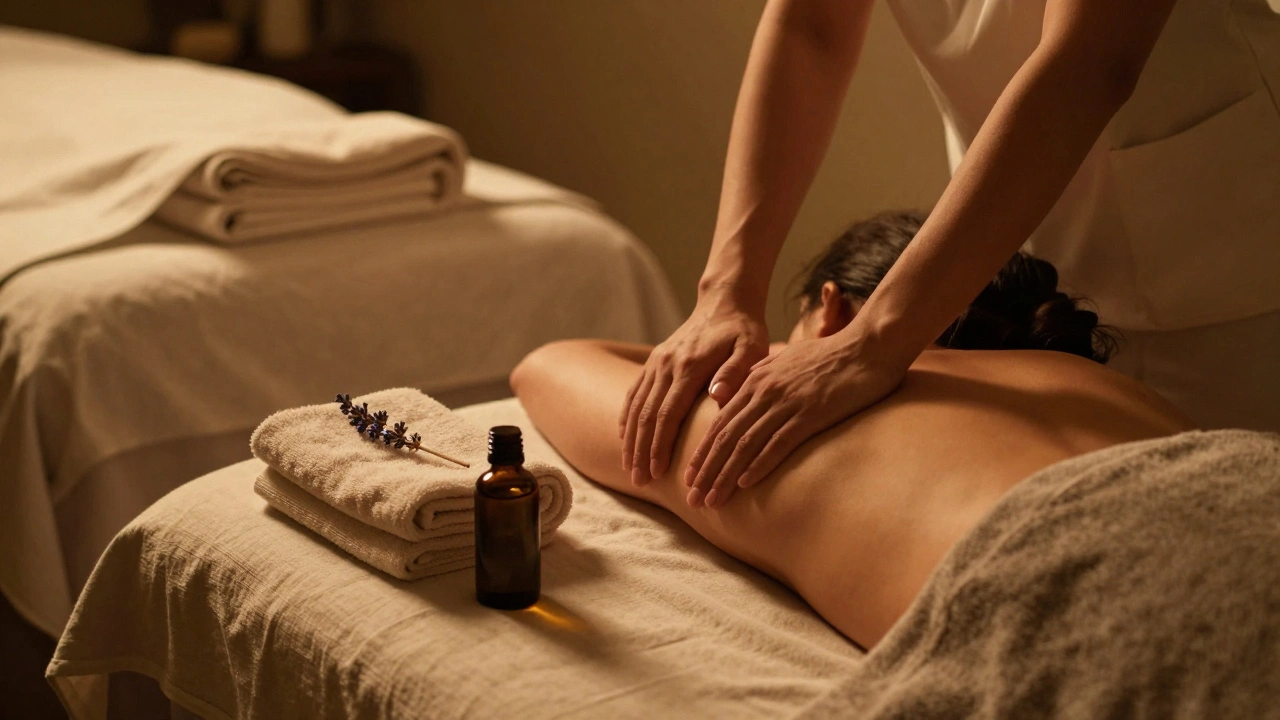

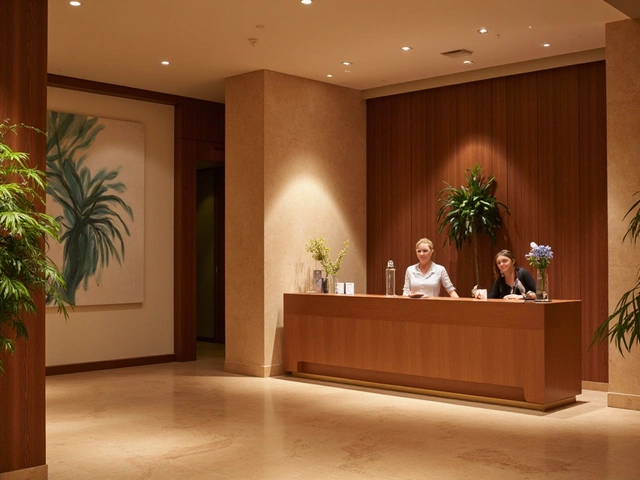
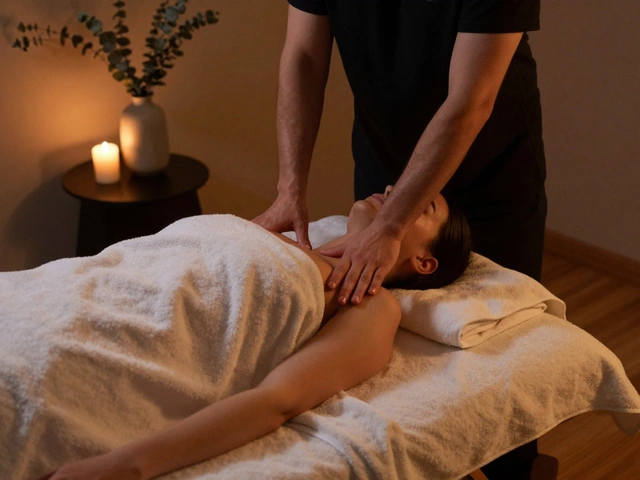
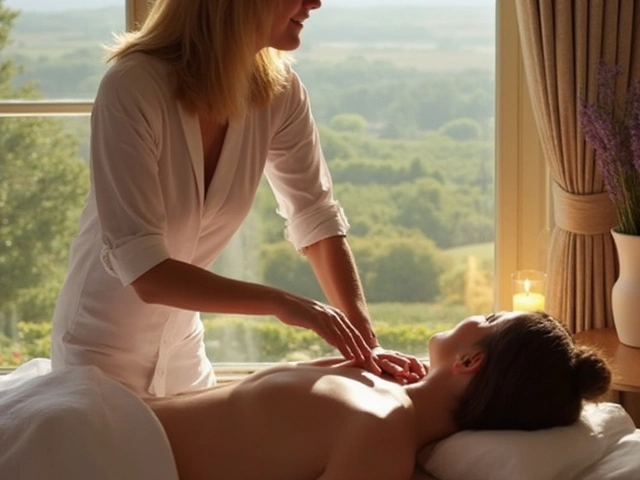
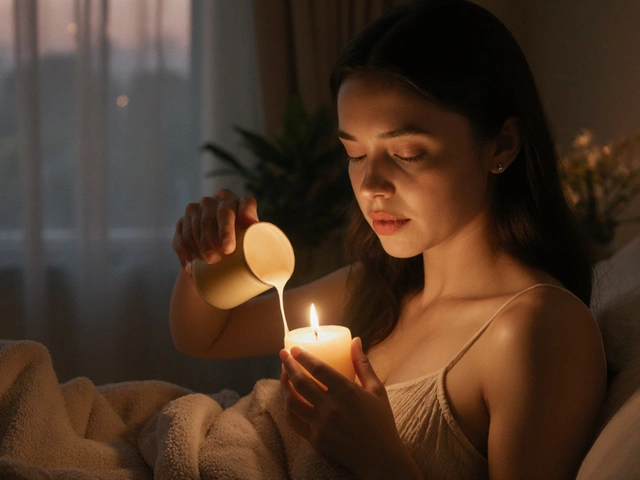
Jazzmen McCray
October 31, 2025 AT 20:27Anjali Ragi
November 1, 2025 AT 02:07Griffin Treanor
November 2, 2025 AT 02:55Trent Curley
November 3, 2025 AT 06:53Ntombikayise Nyoni
November 3, 2025 AT 14:16Gabriel Sutton
November 4, 2025 AT 16:52Jason Parker
November 5, 2025 AT 05:54Jessica Montiel
November 5, 2025 AT 20:04Natalie Norman
November 6, 2025 AT 15:58